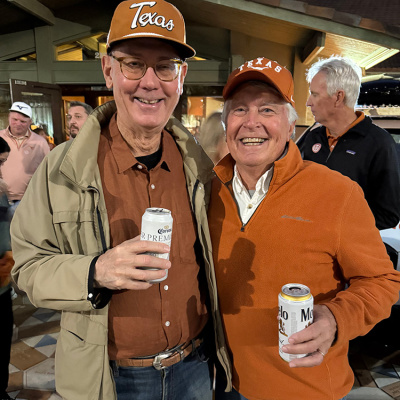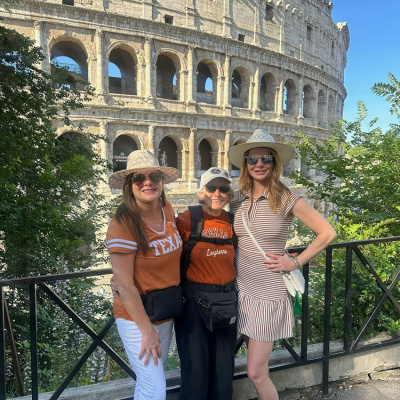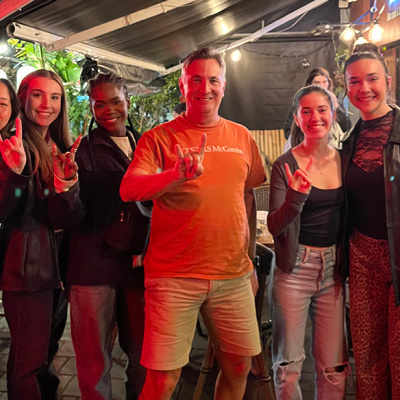My Sister Was Set to Have the Same Great Freshman Year I Had. Then Came the Pandemic.
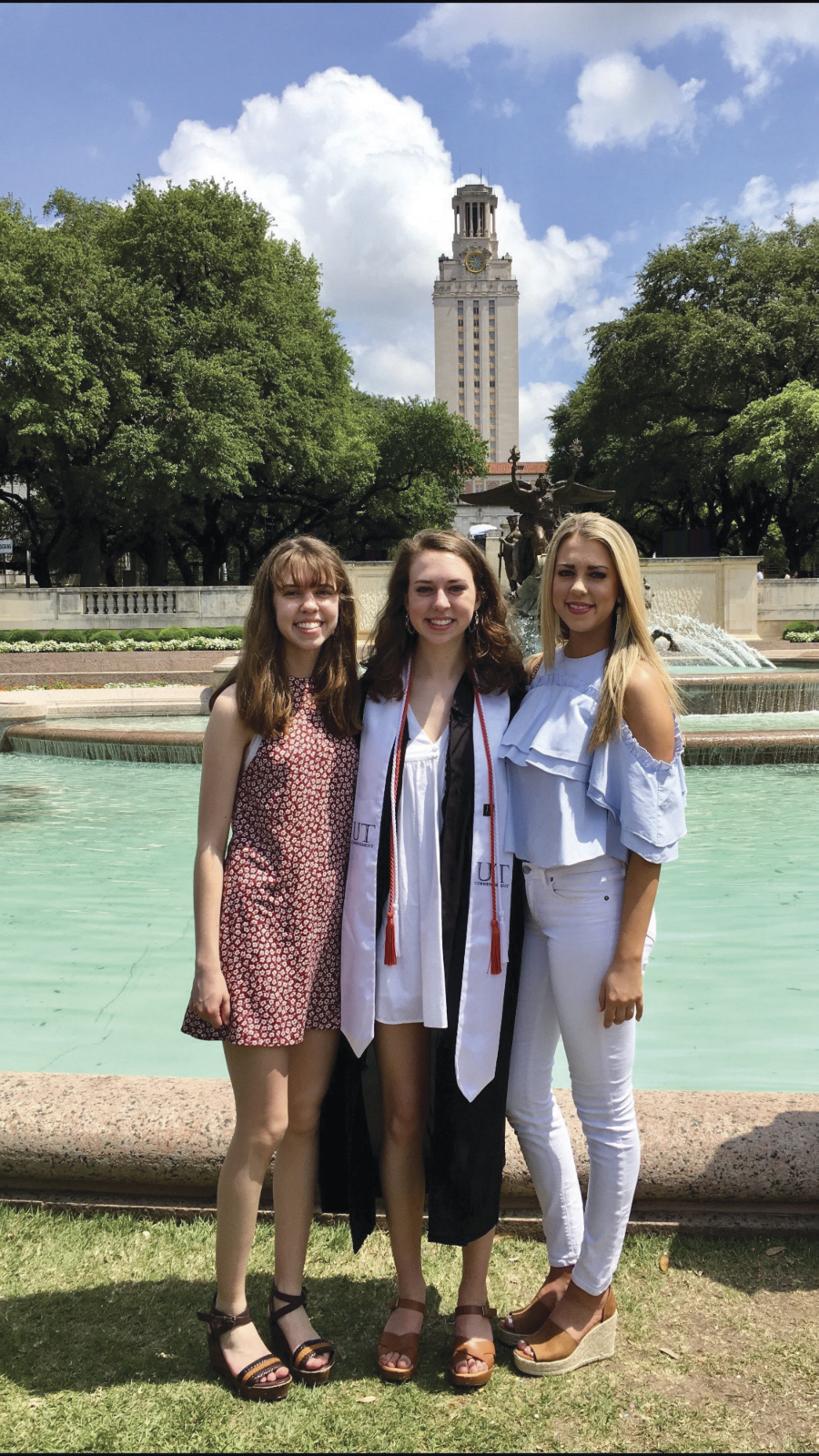
I don’t know what it’s like to be a mother. But when you have a younger sibling, you find yourself slipping into a pseudo-parent role from an early age.
With Cara, who is six years younger than me, it started off small. I’d entertain her with funny faces in the backseat so she’d stop crying during road trips. Then, I began protecting her—giving her my pet fish, so I wouldn’t have to tell her that hers had died. Like me, she eventually grew into a perfectionist; every decision needed to be the right one and failure was a terrifying prospect.
When my mother dropped Cara off for her freshman year at UT in August, I wondered if it was time for me to stop mothering her, too. But everything felt more uncertain than ever. Austin was coming down from its highest spike of COVID-19 cases. Across the country, universities were closing after reopening sparked outbreaks. UT no longer felt like the haven of freedom and new experiences it once was for me, but a place where a chance encounter with someone who lives down the hall could spell the worst.
Cara got placed in Carothers Dormitory, just a few doors down from my old room. There’s a picture of the two of us from 2014, on the day I moved in. We’re sitting on my twin bed in my newly decorated space. Cara, in middle school at the time, looks so little, her teeth crooked and her toothpick legs dangling off the side. My mom wanted to replicate that photo. “Do not let me forget a picture,” she said, as we hurriedly carried another load up to the second floor.
Only two people were allowed to help each student move in under COVID-19 precautions, and we had a one-hour time slot, which was hardly long enough to turn a foreign place into a home. We moved quickly, my mom filling every nook with things she thought Cara might need—bottles of hand sanitizer, extra face masks—and me helping Cara tack posters of Gloria Steinem and Friends on her walls. We were so focused on getting things done and staying safe that we forgot the picture.
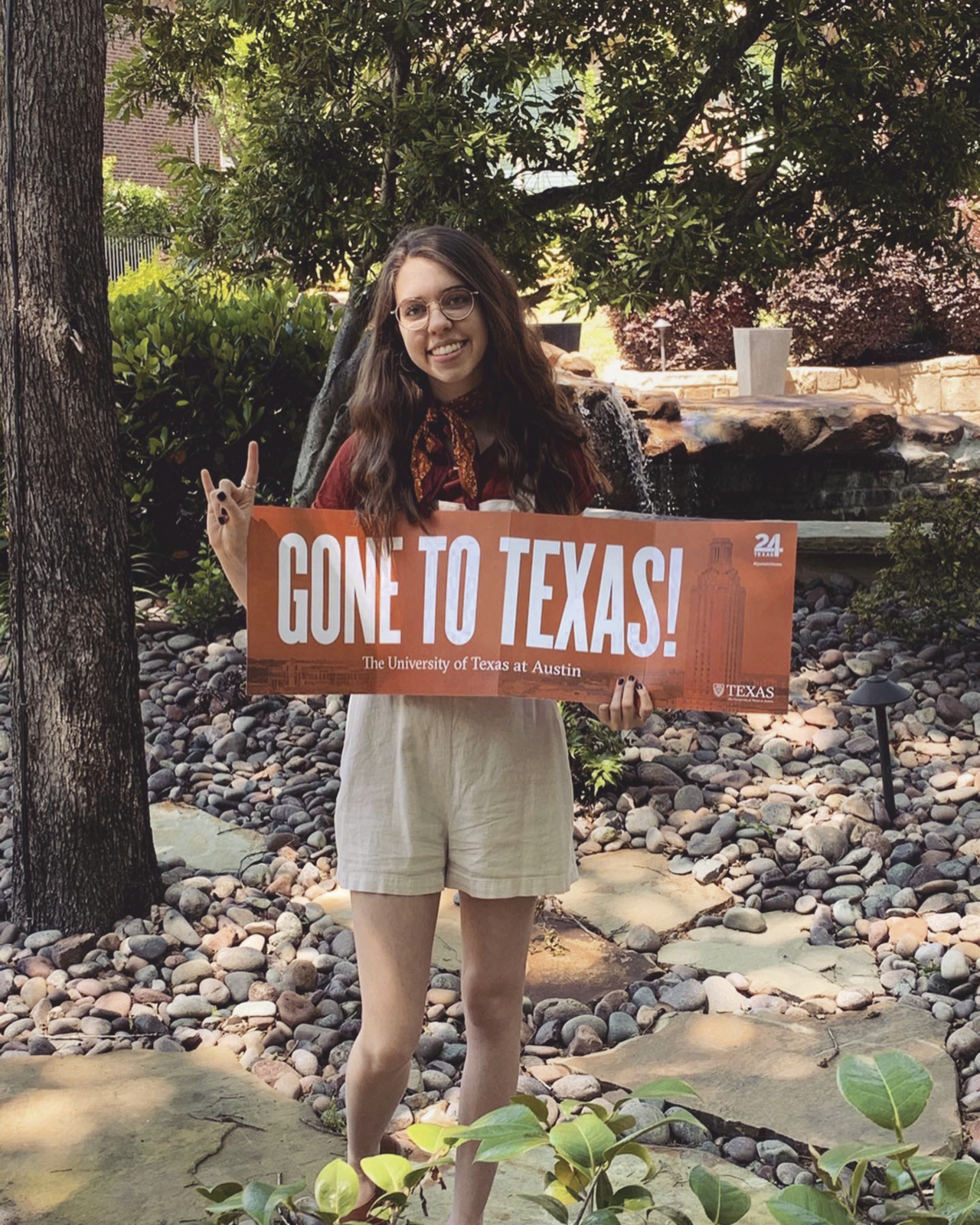
Missed moments, of course, have become the norm now. Cara had already missed her senior prom and traditional high school graduation ceremony. But those disappointments seemed silly to complain about. What does it matter that college freshmen don’t get to have a “normal year”—no parties, no tailgating, no giant lecture halls—when people are dying, and the economic fallout of the coronavirus has rendered college impossible for so many? I saw Cara battle these internal conflicts, struggling with her own personal grief.
“You know, it actually sucks to be the youngest,” she said to me one day over the summer. She was scrolling through her email, looking for an update on whether campus would open. “I can never enjoy anything. Everything is uncool by the time it’s my turn to do it.”
That’s when it hit me: Being the youngest means living everything first through the eyes of older sisters. Graduation. Going off to college. By the time it’s finally your turn, the event is never as amazing as you dreamed it would be. Your sisters have moved on to the next big thing. Cara has always had to live in the shadow of me and our older sister Alexa—and the pandemic only heightened this feeling for her. Experiences that felt like guarantees were ripped from her or contorted into something different and, often, boring. Orientation became a series of videos she watched from her bed at home. Lectures and seminars became Zoom calls.
Freshman year is typically a time to make friends, but the coronavirus has forced everyone to be selective with whom they interact with in person. I remember feeling lonely my first year, but trying to normalize Cara’s loneliness with phrases like “everyone feels a little lost their freshman year” and “you’ll make friends eventually” feels out of touch. No sisterly advice could bring her the community she’d hoped for.
When she met new people in line at dining halls or through the handful of high school friends who came to UT, she found herself wondering if she’d even notice them without a mask on. “It’s awkward because what if I don’t recognize them and don’t say hi?” she said.
And there were moments when the severity of the pandemic was impossible to ignore. One weekend, she got an email from UT. “I am writing to let you know that an individual in Carothers Hall has tested positive for COVID-19,” it read.
Two weeks passed and Cara showed no symptoms. I watched her slip into her new normal, which became our new normal. She began spending her weekends with me. I’d order us Thai food, and we’d watch movies or Saturday Night Live. She’d ask my advice on course schedules and how to properly format an MLA citation. She asked me about the guys I dated in college, the first time I drank alcohol, and other topics I’d always kept hidden. This was the first time we were living in the same city in years, and the new quietness led to moments we might not have had otherwise.
One weekend I took Cara and her friends to Zilker Park, wanting her to experience something quintessentially Austin. We spaced out on blankets and they lamented about not being able to have friends over in their dorms. Most of their social lives consisted of hanging out with friends outside, their plans often impacted by weather.
“Next semester will be better,” one friend said.
“I think more classes will be in person,” Cara added.
I listened to their optimism. For a while, being in the park was the most normal I’d felt in a long time. The sun shined on the skyline as it always has. People lugged coolers to a spot on the grass. The parking lot was full, as I’ve always known it to be on a Saturday in Austin.
Part of me knew, too, that the start of a new calendar year wouldn’t actually change much. As the world awaits the rollout of a vaccine, our safe practices must continue. But I also know how desperate our minds can be for a finish line when we’re in pain.
So, I nodded. Next semester will be better, I agreed. Eventually, we packed up our blankets, put on our masks, and headed back to the present.
